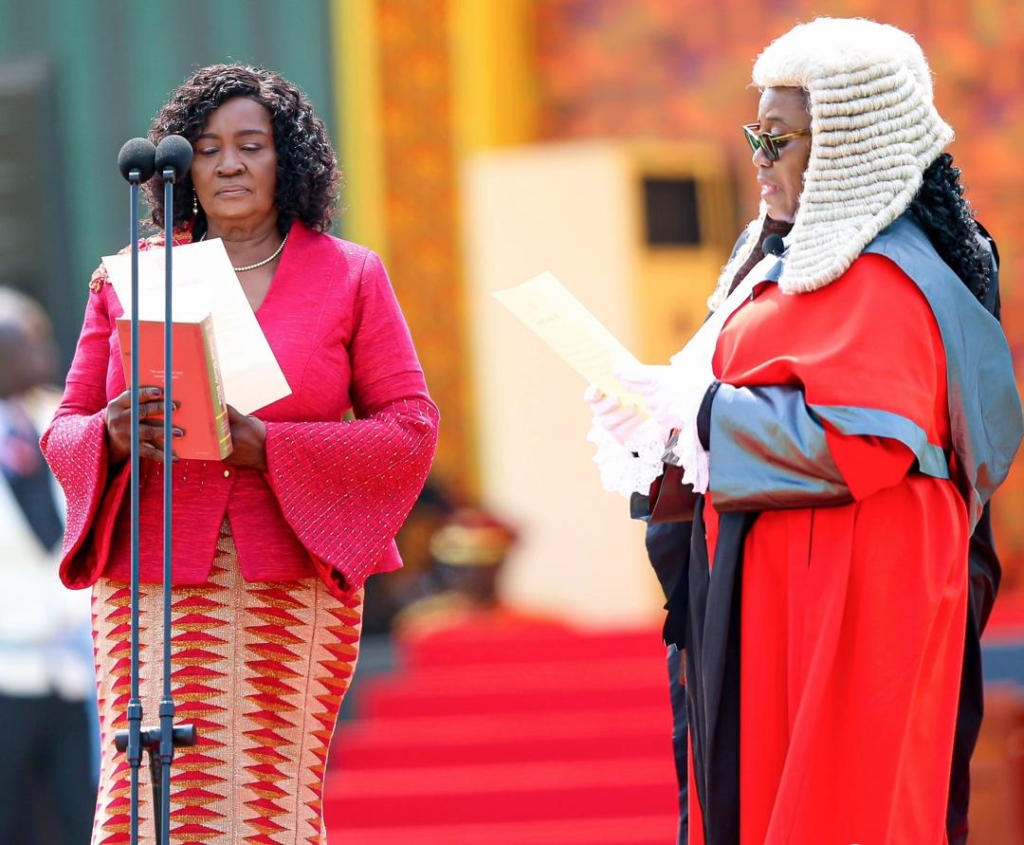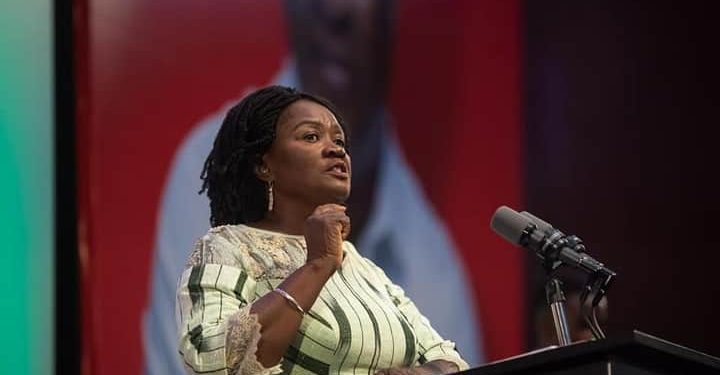Ghana made history when the National Democratic Congress (NDC) nominated Professor Jane Naana Opoku-Agyemang as the running mate to former President John Dramani Mahama for the 2020 general elections. Her nomination marked a significant milestone in Ghanaian politics, as she became the first female to run for vice presidency on a major party ticket. This bold move by the NDC proves a progressive shift towards gender inclusion and amplified discussions around women’s representation in governance.
Nomination by the NDC
The selection of Professor Opoku-Agyemang was met with widespread praise from various quarters of society. As a former Minister of Education and an accomplished academic, her nomination was seen as a strategic and progressive decision by the NDC. John Mahama, in his announcement, highlighted her integrity, leadership, and commitment to national development as key reasons for her selection. The party’s decision to choose a woman of her caliber sent a strong signal about its commitment to promoting gender equality and diversifying leadership.
Credentials and Leadership Experience
Professor Opoku-Agyemang’s credentials are nothing short of impressive. She holds a PhD in English Literature and has had a distinguished academic career, serving as the first female Vice-Chancellor of the University of Cape Coast. Her tenure as Vice-Chancellor was marked by significant achievements, including infrastructural expansion and the promotion of research and academic excellence.
Beyond academia, she served as Ghana’s Minister of Education from 2013 to 2017, during which she led key reforms in the education sector. Her leadership in implementing policies aimed at improving access to quality education, especially for underprivileged communities, won her national and international recognition. Her wealth of experience in both academic administration and public service makes her well-positioned to bring a unique perspective to Ghana’s governance.

Value to Governance
As Vice President, Professor Opoku-Agyemang brings a combination of intellectual depth, administrative prowess, and a people-centered approach to governance. Her background in education positions her as a key advocate for human capital development, which is critical for Ghana’s socio-economic transformation. She is expected to champion policies that promote inclusive growth, especially in sectors such as education, healthcare, and women’s empowerment.
Furthermore, her history of ethical leadership is likely to enhance public trust in governance. With concerns about corruption and accountability remaining high among Ghanaians, her presence in the executive arm of government offers hope for a more transparent and people-oriented leadership.
Inspiration to Women and the Youth
The rise of Professor Opoku-Agyemang to the vice presidency serves as a powerful symbol of possibility for women and young people in Ghana and across Africa. Her journey from academia to national leadership illustrates that with determination, hard work, and integrity, women can break barriers in traditionally male-dominated fields. She stands as a role model for young girls, inspiring them to aspire to leadership positions in politics, education, and other sectors.
Her nomination and eventual role as Vice President are a testament to the gradual progress towards gender parity in Africa. Countries like Rwanda, Ethiopia, and now Ghana are leading the way in ensuring that women have a seat at the decision-making table, and this trend is reshaping narratives about women’s capabilities in leadership.
Link to Affirmative Action
The nomination of Professor Opoku-Agyemang is closely linked to the broader agenda of affirmative action in Ghana. Over the years, various advocacy groups have called for the passage of the Affirmative Action Bill to ensure that women are adequately represented in all spheres of governance. Her elevation to the vice presidency highlights the importance of creating deliberate opportunities for women to lead.
By appointing a woman to such a high-ranking position, the NDC has demonstrated that political parties can play a pivotal role in advancing gender equality. It also underscores the need for continued advocacy to institutionalize affirmative action policies, ensuring that women’s representation is not only symbolic but also substantive.
Expectations of Ghanaians
As the first female Vice President, Professor Opoku-Agyemang is perceived by many as a mother figure in national leadership. Ghanaians expect her to bring empathy, compassion, and a nurturing approach to governance. Mothers are traditionally seen as pillars of strength, unity, and care, and many hope that she will embody these qualities in her leadership.
There are high expectations for her to champion social welfare initiatives, promote peace and unity, and advocate for the rights of the vulnerable, particularly women and children. Additionally, her role offers an opportunity to bridge political divides and foster a governance style that prioritizes the welfare of ordinary citizens over partisan interests.
Conclusion
The ascension of Professor Jane Naana Opoku-Agyemang to the vice presidency represents a new dawn in Ghanaian politics. Her nomination and eventual role have not only shattered a significant glass ceiling but have also set a precedent for future generations of women leaders.
As Ghana charts its path towards sustainable development, her leadership is expected to play a crucial role in shaping a more inclusive and equitable society. For young girls across Ghana and the African continent, she stands as a beacon of hope and a testament to what is possible when opportunity meets preparation.
Written by Lambert Donkor (Advocate for Social Change)


Comments are closed.